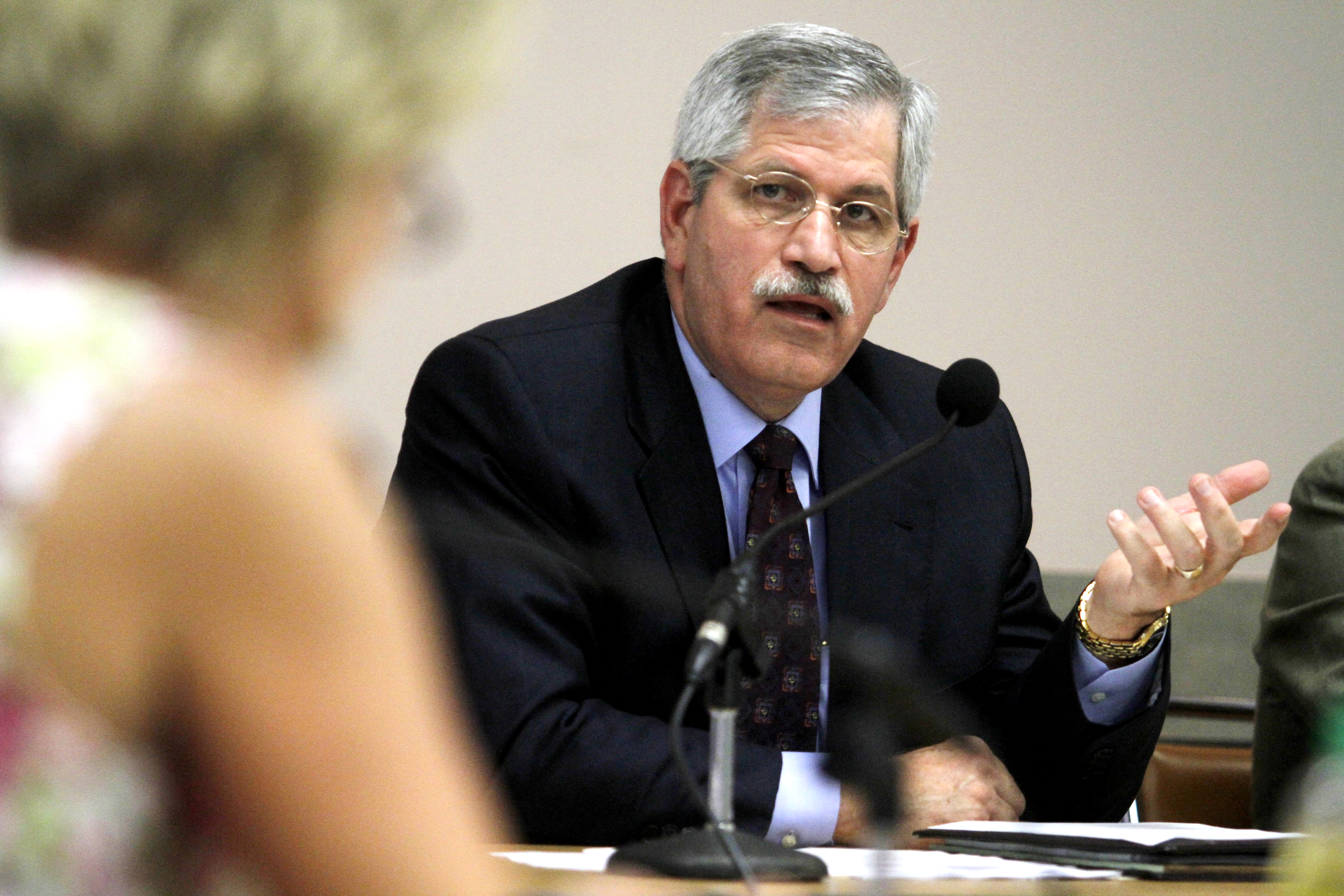If the Hamilton County school board approves a balanced budget next Thursday - which would mean almost $18 million in cuts - Chairman Mike Evatt wants the County Commission to kick in some more money.
He said he plans to ask commissioners - who control the school system's money - to release special education funds paid to the county. The payment-in-lieu-of-taxes funds, known as PILOTs, already amount to between $3 million and $4 million and could keep schools from overcrowding and understaffing, he said, which is likely if the student population jumps more than the 500 students expected next year.
"We are to the point where I feel like, if we are asked to cut at this level, we will need additional revenue," newly hired Superintendent Rick Smith told the board Thursday night at a work session to discuss the budget. "We are growing. It makes me nervous .... The scary thing will be if a 1,000 [more] kids show up."
PILOT agreements are tax breaks used to lure companies, such as Volkswagen. Under the agreements, businesses don't have to pay full property taxes for a certain number of years, but they must pay the share of property tax that is slated for schools.
Board of Education members proposed budget cuts to balance the school district's 2012 budget. Evatt said commissioners were skeptical of newly elected board members and "didn't give (them) a chance" to prove that they took the situation seriously.
But the severity of $17.8 million in cuts on the table - cutting as many as 30 teaching, support and assistant principal jobs, lowering the number of projected teaching hires from 55 to 45 and eliminating nearly half the budget for facilities maintenance - may send a message that the board is serious about being frugal, Evatt said.
And after speaking with several commissioners, he said he has reason to be optimistic.
"Once they see we are doing what is right, they may say 'OK,'" Evatt said.
But asking the commission for PILOT money could open up some old wounds. Earlier this year, some commission members said they wanted the PILOT dollars to be earmarked only for school construction and threatened to withhold the money if the school board didn't agree.
Former Superintendent Jim Scales argued that the money was needed for the system's general budget - as it always had been used in the past - and that withholding it would be illegal.
The commission and school board finally agreed that money generated from new PILOT agreements or any increases in PILOT money due to property tax hikes will be withheld by the commission while the school system will continue to receive the amount of money it has been receiving.
Still, decisions about some budget cuts didn't sit well with board members during Thursday night's discussion.
Board members including Rhonda Thurman, Linda Mosley, David Testerman and George Ricks spoke out against Smith's plan to get rid of health insurance benefits for 49 contracted bus drivers. Trimming driver benefits would save $490,000.
"I doesn't seem fair to jerk that out from under them right now," Mosley said.
She suggested that contract drivers simply pay more toward their insurance premiums, noting that teachers increased their individual premium from $25 to $100, saving the system millions.
Removing health coverage for the drivers, most of whom are over the age of 55 and would find it nearly impossible to find and afford new insurance, is wrong and unfair, especially without notice, some drivers said.
"It would affect my livelihood greatly," said Jerry Green, a driver who attended the meeting with more than a dozen other drivers.
Green, 64, has driven for the county for 38 years and said he knows the schools must come up with a balanced budget, but hopes they can do it without putting so many bus drivers at risk.
Smith said the budget he will present next week for approval will not include a plan to cut contract driver's benefits.
But that will force the school system to dig deeper into its Rainy Day Fund balance, leaving it with between $10 million to $11 million, he said. Even with the current cuts, the school system will have to use $1.5 million of the fund to cover costs, he said.
The state requires the system have 3 percent, or about $10 million to $11 million, of its $315 million general fund in reserves.
After school board members OK the budget, the County Commission must approve it.

